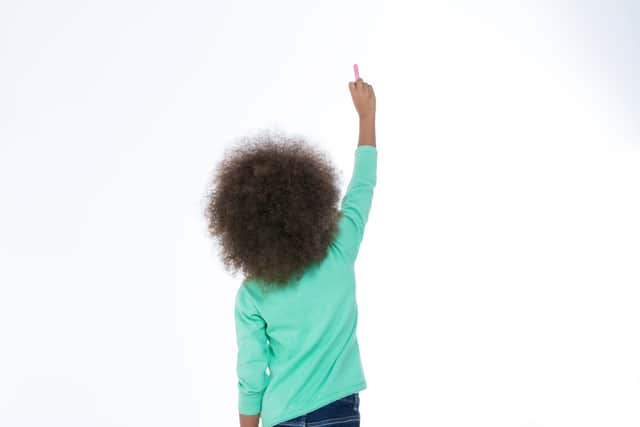Watchdog warns schools that ban Afro hairstyles and head coverings could be seen as ‘unlawful’
and live on Freeview channel 276
Pupils should not be stopped from wearing their hair in natural Afro styles at school, the Equality and Human Rights Commission (EHRC) has announced in new guidance The guidance refers to styles such as afros, braids, cornrows, plaits, locks and head coverings.
According to the EHRC, race is a protected characteristic under the 2010 Equality Act, which means a person must not be discriminated against because of their hair or hairstyle if it is associated with their race or ethnicity.
Advertisement
Hide AdAdvertisement
Hide AdNew resources from the EHRC, which have been endorsed by both the World Afro Day campaign and All-Party Parliamentary Group (APPG) for race equality in education, will now help school leaders to identity whether or not their uniform and dress code policies are unlawfully discriminatory.
Jackie Killeen, chief regulator at the EHRC, said: "Discrimination based on hair can have serious and long-lasting consequences for victims and their families. As Britain’s equality regulator, we want to put a stop to pupils being unfairly singled out for their appearance in schools.
"That’s why, after working closely with experts and those directly affected, we are launching these practical resources to help school leaders understand the law in this area and prevent discrimination from happening. Every child deserves to be celebrated for who they are and to thrive in school without having to worry about changing their appearance to suit a potentially discriminatory policy."
L’myah Sherae, founder and chief coordinator of the All-Party Parliamentary Group (APPG) for race equality in education, said: "No child should be sent home from school for wearing their natural hair, which is why our APPG wrote to the EHRC in October 2021 to highlight the need for new, strengthened guidance.
Advertisement
Hide AdAdvertisement
Hide Ad"We want black children across the UK to know that they can be genuinely proud of their identity, not penalised for it. I am therefore pleased that this guidance is now being published, and I am proud to have been involved in the drafting process."


Michelle De Leon, Founder and CEO of World Afro Day said: “Contributing to the new EHRC resources has been an important step towards ending hair discrimination, which many children with Afro hair experience on a daily basis. Our work supporting families, protecting children and educating school leaders shows that this extra guidance is needed.
“We hope that these resources will be an effective tool to clarify equality law for teachers and help shift the bias against Afro hair that has become ingrained in some parts of the education system.”
